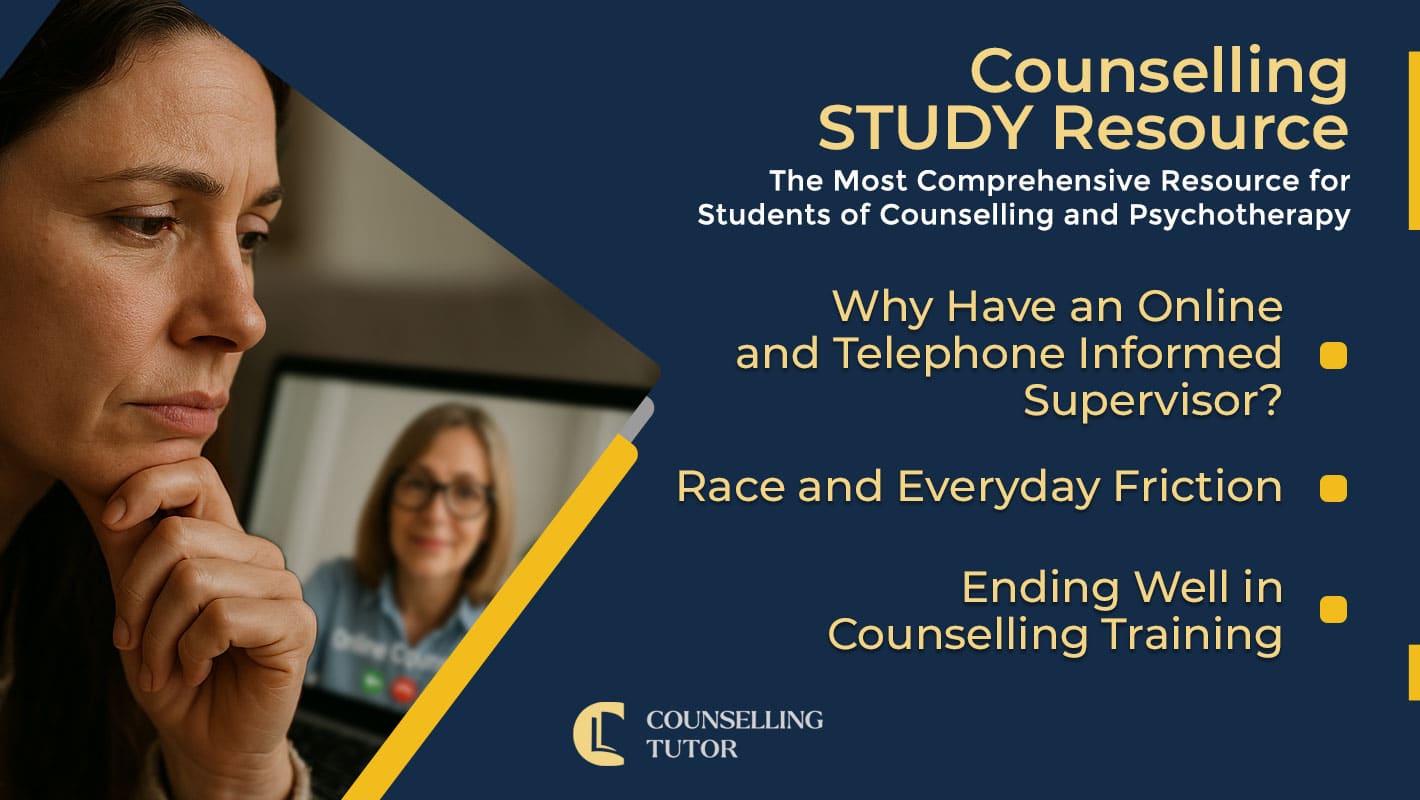See Counselling Skills Used in Real Sessions by Qualified Therapist
Real Sessions – Real Presentations – Real Skills
Gain the competence and confidence to use counselling techniques effectively!

In Episode 343 of the Counselling Tutor Podcast, your hosts Rory Lees-Oakes and Ken Kelly take us through this week’s three topics:
Firstly, in ‘Ethical, Sustainable Practice’, they explore the importance of having an online and telephone informed supervisor when you work in this way.
Then in ‘Practice Matters’, Rory speaks with Sarah Henry about her concept of race and everyday friction – how these subtle, often hidden experiences shape identity and create barriers in life and therapy.
And finally in ‘Student Services’, Rory and Ken discuss the significance of ending well in counselling training – how to navigate goodbyes with your peers and why these endings matter in your development.
In this section, Rory and Ken unpack the ethical importance of having an online and telephone informed supervisor when you practice in these ways.
Key points discussed include:

Real Sessions – Real Presentations – Real Skills
Gain the competence and confidence to use counselling techniques effectively!
In this week’s ‘Practice Matters’, Rory speaks with Sarah Henry, a counsellor and trainer who explores the concept of everyday friction. Those small, often overlooked experiences of race that shape a person’s daily life.
Key points from this conversation include:

On-demand access to a rich lecture library covering theory, skills, and professional development for counselling students—Mapped to the UK awarding body criteria
“The Student Library has been BRILLIANT, I can’t recommend it enough!
It has been a lifeline in helping me prepare for practice and my first clients. If you’re considering it, go-for-it, it’s absolutely worth it!”
Kelly – Graduated and now in practice.
In this section, Rory and Ken share insights on ending well in your counselling course—whether you’re finishing a term, a module, or the whole course.
Key points include:
Why Have an Online and Telephone Informed Supervisor

Get on-demand Certified CPD that is implementable in your practice
